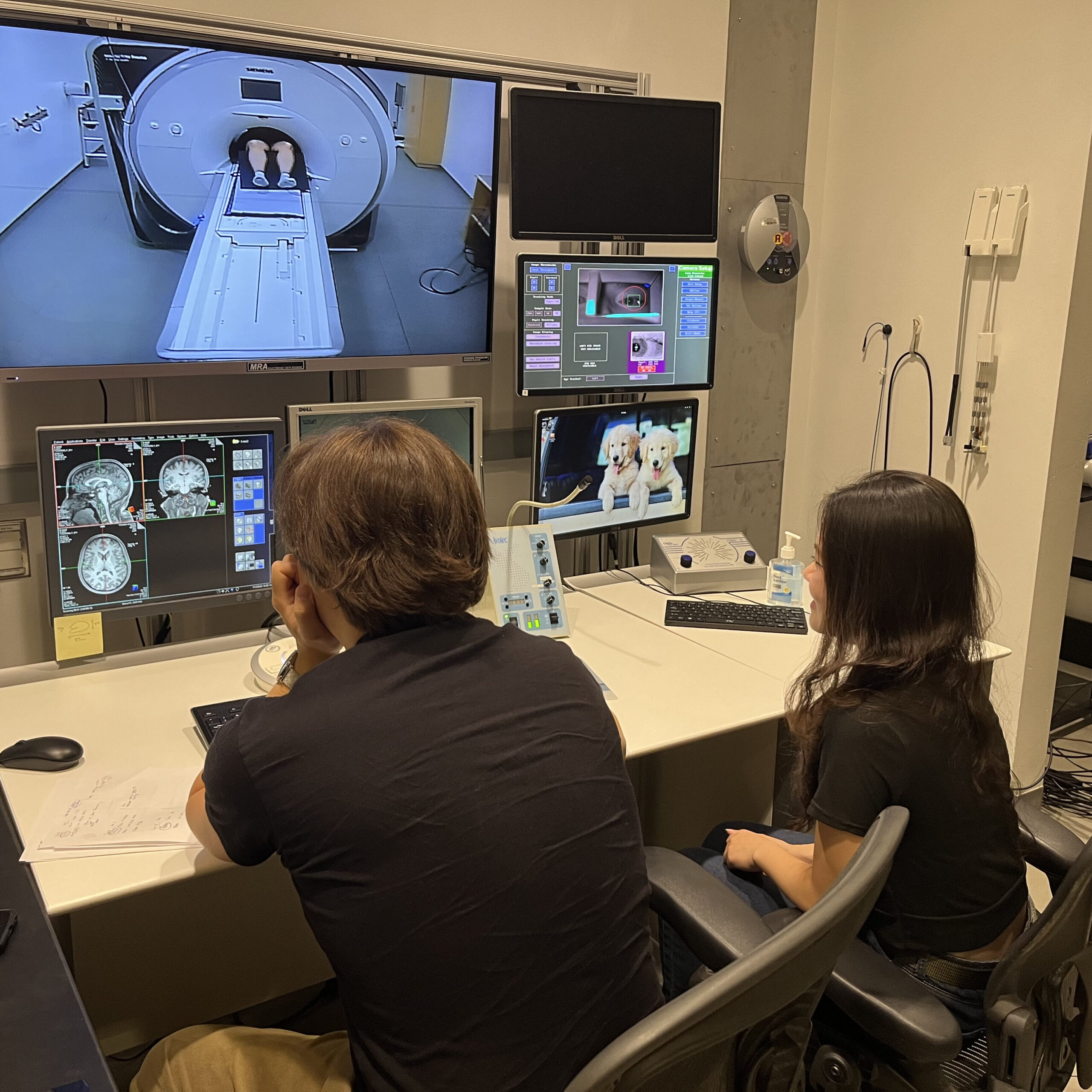
It felt a little odd to begin an email with, “I wrote about your lab in my application to Princeton!” but it was the truth. Since high school, I had been fascinated by memory and its profound effects on shaping our lives, which motivated me to pursue a degree in neuroscience. Professor Kenneth Norman’s work in the Princeton Computational Memory Lab captured my attention while I was exploring Princeton’s resources for my application essays. I wrote about how I wanted to be a part of the lab and study human memory, specifically focusing on how the brain and mind can overcome the emotional consequences of trauma-based memories. After arriving at Princeton, I had been eagerly awaiting the right time to reach out to Professor Norman about getting involved in his research.
Once I hit “send” on that email, I found myself checking my inbox multiple times a day, filled with anticipation. I had doubts if I was qualified to be a part of the cutting-edge work in the Norman Lab as a first-year and even if he would respond to my email. However, my excitement soon replaced nervousness, and before I knew it, I was sitting in Professor Norman’s office discussing potential research opportunities. He was enthusiastic when I expressed my interest in traumatic memories and PTSD-related research and advised me to meet with Dr. Augustin Hennings, a postdoc in his lab who was working on projects specifically related to that. Walking out of that meeting with a smile on my face, I felt an overwhelming sense of accomplishment. I had only been on campus for two weeks, and already, I was making strides toward the goals I set for myself.
Dr. Hennings’s research focused on using fMRI neurofeedback, a technique in cognitive neuroscience, to improve the brain’s ability to control memory. Neurofeedback works by recording brain signals and comparing them to the patterns seen when a task is completed successfully. By showing participants how well they are doing, neurofeedback stimulates learning and helps them improve. This process can be particularly useful in mitigating PTSD symptoms, like intrusive thoughts. Trauma survivors often struggle to control trauma-related thoughts that invade their minds. Neurofeedback, by targeting specific pathways related to memory control, can enhance their ability to detach from traumatic experiences and regain mental autonomy.
Throughout the spring semester, I dove into research papers with Dr. Hennings, trying to better understand neurofeedback and its application in PTSD studies. Despite the steep learning curve, I found the work incredibly inspiring. I couldn’t wait to take on a larger role and contribute more to the field.
As the semester came to a close and summer approached, I began looking into opportunities that would allow me to delve deeper into what had motivated me all spring. The Office of Undergraduate Research Student Initiated Program (OURSIP) immediately caught my eye, offering a chance to continue working under Professor Norman and Dr. Hennings’s guidance. Although the idea of spending summer on campus—especially as an international student from Thailand—seemed daunting, the opportunity to immerse myself in research without responsibilities to assignments and schoolwork was too good to pass up. With the support of my mentors, I applied for and was awarded the grant, becoming one of the OURSIP interns.
This past summer was an incredible experience. Working as a full-time research assistant, I learned how to navigate the literature, refine our hypotheses, and design experiments. One of the most exciting parts of my work was helping monitor fMRI scans. Watching the brain signals transform into images, offering a glimpse of what was happening in the participants’ minds, was endlessly fascinating. Additionally, I enjoyed the workshops and lunches organized by the Office of Undergraduate Research (OUR). Hearing about the diverse journeys of professors and researchers from various fields was inspiring, pushing me to invest in my passion and embark on my own path. The final research symposium also highlighted the importance of scientific communication and allowed me to learn how to share the story of my research with people from different disciplines.
Now, as a sophomore, I am continuing my research in the Norman Lab through the NEU250: Neuroscience Research Experience course. I am eager to see where this journey will take me next, as I build on everything I’ve learned so far and solidify my passion for neuroscience and research.
— Angel Toasakul, Natural Sciences Correspondent

